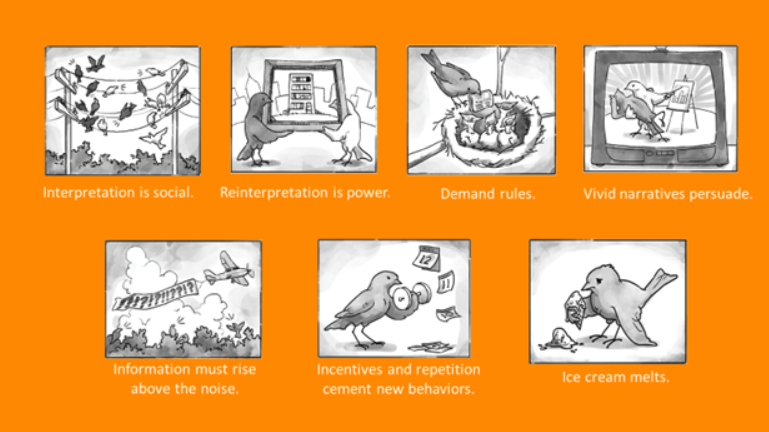This piece was originally published on the Global Delivery Initiative (GDI) blog at http://www.globaldeliveryinitiative.org/blogs/when-knowledge-power-insights-new-feedback-labs-report. It has been re-posted here with their permission.
Since recently moving to the DC area, I’ve had the pleasure of meeting several people who work out of the OpenGov Hub. Described to me as the place “where all the cool kids hang out”, the OpenGov Hub is a co-working space that hosts over 40 organizations dedicated to empowering citizens and making their governments more accountable and open. Last week I decided to brave DC’s July heat for the short trek past the White House and up Vermont Avenue to visit the OpenGov Hub. The draw that tempted me outdoors on a muggy Wednesday was an event entitled “Under what conditions is information empowering?”.
As the Program Lead for the Global Delivery Initiative (GDI), I found this question intriguing because information and knowledge are central to GDI’s theory of change. GDI aims to improve the delivery of development projects by creating a common language to facilitate dialogue on delivery, building a collective evidence-base of implementation know-how, and connecting practitioners. However, fulfilling this mandate means more than bringing information and knowledge together; it also requires inspiring and empowering development practitioners to translate that information into action. I hoped to find out if there is more we could be doing to strengthen this process.
The narrative set out at the start of the event went something like this:
Due to a lot of effort and resources combined with new technologies, data and information are now more transparent and accessible than anything we could have imagined a decade ago.
And while this has led to some very positive outcomes (think: information campaigns leading to decreased smoking rates, increased vaccine rates, and an upsurge in recycling), overall results have been mixed. We know that information alone does not always empower or lead to the changes we hope to see. So, we need to ask what are the factors that make a difference.
This question was explored through a collaborative research effort supported by the Omidyar Network, which resulted in the report launched at this event. At the start of the event, Megan Campbell of GDI partner Feedback Labs, the report’s primary author, revealed the headline finding: for information to empower, it needs to be embedded in a social and emotional context that inspires people to reinterpret that information and act on it. She also quickly laid out seven key principles that help explain when information does and doesn’t empower change (see graphic below).
7 Principles

However, rather than spending the next hour and a half presenting the details of the research findings, Megan did exactly what the report recommended: she asked participants to consider the key findings in relation to our own social and emotional contexts. We were instructed to break up into small groups for an interactive discussion on one of the principles and to think through how it does or doesn’t apply in the context of our own work.
I joined the group on the principle “Demand Rules” – in other words, information is more likely to empower, if it meets a clear demand. We had an engaging discussion about a wide range of issues: the need to take a problem-driven approach (rather than an information-driven approach). In other words, we should focus not on providing information for information’s sake; rather, it is about identifying the right information to help solve a specific, clearly-defined problem. We also talked about how to draw on the huge wealth of analytics available to identify demand; how network mapping and design/systems thinking can help unpack demand; the critical importance of understanding incentives and the political economy context; and finally, the potential benefit of drawing on the expertise of unusual suspects, such as advertising firms, who are adept at tapping into demand and using persuasive communication techniques. In the closing plenary Q&A, the point was made that sometimes the binding constraint to change is not a lack of information, but rather a stronghold on institutions and power structures that are aligned against change – succinctly expressed through the phrase “power is power.” While participants acknowledged this reality, there was a strong sentiment in the room that power should not go uncontested and that information used in the right ways can be part of the solution.
On my walk back to the office in the blazing afternoon sun, I thought about what this all meant for GDI.
It means we need to think strategically about the social identity and interests of frontline development practitioners and policy makers and better understand the institutional incentives and constraints they face.
It also means finding new ways to identify and leverage the power of key champions and encourage collective dialogue and new narratives. And we need to test multiple tactics and continue to adapt our approach to meet our members’ needs. So, look out for new products and services as we take these principles on board and GDI continues to evolve. And, in the spirit of “demand rules,” as always, we welcome your input. For example, how would you like to see GDI use and share information within the development community to meet your needs? We look forward to hearing from you!







